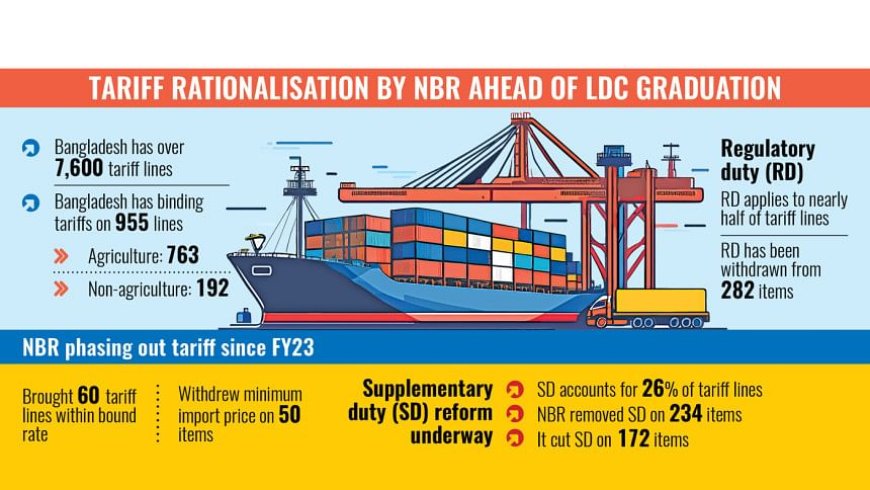Govt Set to Adjust Tariffs on Nearly 350 Item
Govt Set to Adjust Tariffs on Nearly 350 Items

Govt Plans Major Tariff Overhaul Ahead of LDC Graduation
The government is expected to rationalise tariffs on hundreds of items in the upcoming fiscal year as part of efforts to prepare for Bangladesh’s graduation from Least Developed Country (LDC) status in 2026. According to finance ministry officials, the National Board of Revenue (NBR) plans to eliminate minimum import prices for over 40 items, streamline regulatory duties on about 230 tariff lines, and adjust supplementary duties on more than 100 products.
A senior official noted that the aim is to align with World Trade Organization (WTO) rules applicable to developing countries. Of Bangladesh’s 7,611 tariff lines, 955 are bound under WTO commitments. However, 60 currently exceed those bound rates.
Tariff reforms began in FY23 based on recommendations from a government-appointed committee formed in 2021. Since then, the NBR has already reduced tariffs on 60 items, scrapped regulatory duties on 282, and removed minimum import prices on 50.
The panel’s study emphasized that overprotection through high tariffs can hinder export competitiveness. It recommended cutting supplementary duties on non-harmful, non-luxury goods not produced locally, while maintaining high duties on luxury items. Following these suggestions, the NBR has lifted SDs on 234 items and reduced them on 172 more.
The remaining adjustments are scheduled for FY26 under a time-bound reform plan. The study warned that high tariffs and para-tariffs could hamper Bangladesh’s ability to negotiate Free Trade Agreements post-LDC graduation, when duty-free market access will no longer be guaranteed.
Policy experts, including the Centre for Policy Dialogue (CPD), have stressed the importance of aligning tax policies with WTO rules and gradually phasing out direct export incentives. They argue that tariff reform is key to boosting export diversification, enhancing local competitiveness, and facilitating international trade partnerships.
What's Your Reaction?





















































































